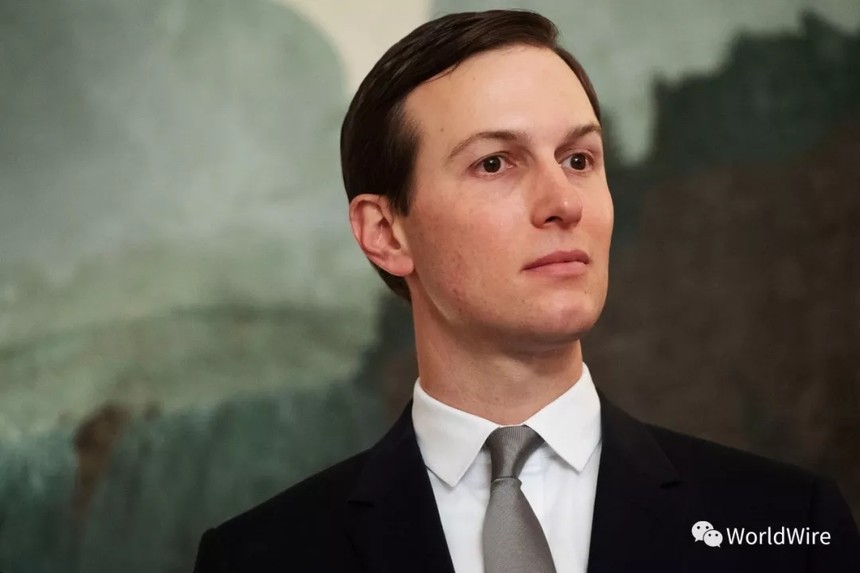|
“It Looks Bad.":Kushner’s Relationship with M.B.S.
Source:vanityfair.com There was some confusion inside the U.S. Embassy in Riyadh before Jared Kushner arrived in Saudi Arabia in February. Washington was still reeling from the grisly murder of Jamal Khashoggi, which had thrown an unexpected wrench into an already tense U.S.-Saudi relationship, and diplomats were still navigating the aftershocks. Ordinarily, embassy staff would be intimately involved in organizing the details of such a trip. But Kushner’s schedule with Saudi Crown Prince Mohammed bin Salman was largely a mystery. In fact, a source familiar with the planning told me, the royal court, not the U.S. Embassy, was arranging Kushner’s itinerary. According to the source, an embassy notetaker was also not present in Kushner’s meetings with KingSalman and the crown prince, nor was the embassy briefed on what the president’s son-in-law discussed behind closed doors. The semi-surreptitious visit is the most recent of several remarkable episodes involving Kushner that are now being investigated by congressional Democrats. Their guiding hypothesis is that Kushner’s diplomatic naïveté and close relationship with bin Salman, better known as M.B.S., might put U.S. national security at risk. “I’m not only troubled—I am stunned by the friendship,” Massachusetts Congressman Jim McGovern told me. “It looks bad. It smells bad. It is bad.” The Kushner-M.B.S. bromance, which has been a source of intrigue and consternation dating back to the earliest days of Donald Trump’spresidency, is of particular interest to Congressman Eliot Engel, the chairman of the House Foreign Affairs Committee. At the end of last month, Engel sent a letter to Secretary of State Mike Pompeo requesting documents and records related to Kushner’s February trip to Saudi Arabia, including any “handwritten notes” related to any meetings attended by Brian Hook, the sole State Department official included in Kushner’s delegation. The goal, a congressional staffer told me, is to glean any insight into what Kushner discussed with M.B.S. and other foreign officials. The State Department missed the deadline this past Friday to provide the information and documents requested by the committee, according to the first congressional source. In a statement to the Daily Beast, which first reported that the U.S. Embassy in Riyadh had been left in the dark about Kushner’s trip, a senior administration official said, “This reporting is not true, and the sources are misinformed.” On Capitol Hill, however, concerns about Kushner’s diplomatic freelancing are widespread. “I think people deal with him because he is the president’s son-in-law,” a second congressional aide told me. But that familial back channel to Trump also leaves the U.S. government vulnerable. As The New York Times has reported, M.B.S. marked Kushner early on as a potentially malleable asset for advancing Saudi interests in Washington. “[Trump’s] inner circle is predominantly deal makers who lack familiarity with political customs and deep institutions, and they support Jared Kushner,” a delegation of Saudi officials, sent to the U.S. in November 2016, wrote in a slide presentation obtained by the Lebanese newspaper Al Akhbar. The Saudi crown prince later boasted that he had Kushner “in his pocket,” according to the Intercept. “No one is impressed that he is friends with M.B.S. No one cares. It is a bad thing,” the second congressional aide said, adding that Kushner’s trust in the crown prince makes him look “completely out of his depth.” Shortly after Kushner’s first surprise trip to Saudi Arabia, for instance, in October 2017, M.B.S. initiated a sweeping crackdown on his political rivals, imprisoning more than 30 Saudi elites at the Ritz-Carlton, reportedly torturing some of them, and allegedly kidnapping Lebanese Prime Minister Saad Hariri. (The Saudi government has denied allegations of torture and abuse during the “anti-corruption proceedings.”) Defenders of the U.S.-Saudi alliance, including Kushner, Trump, and Pompeo, argue that these are the realpolitik costs of containing Iran and resolving the Israeli-Palestinian conflict. But critics of the administration say the White House is getting played. “[A relationship with M.B.S.] does not mean that you are going to be the guy who is going to bring Middle East peace,” the congressional aide said. “It is an embarrassment.” As is the case with his father-in-law, Kushner’s reluctance to provide a window into his interactions with M.B.S. has raised questions as to what, if anything, he may be trying to hide. Some Democrats have pointed to Kushner family businesses, including Thrive Capital and Cadre, that courted Saudi money. Others have highlighted financial entanglements, including the Kushner family’s underwater mortgage on 666 Fifth Avenue, which was bailed out by a Qatari-connected asset-management company in August. In its sweeping document request to 81 individuals, agencies, and entities earlier this year, the House Judiciary Committee included a request for Kushner to provide information related to his business interests. Last week, House lawmakers launched an investigation into how Kushner obtained a high-level security clearance after reportedly being red-flagged for “significant disqualifying factors” on his résumé. “This all comes back to giant questions about the president and his family and his business’s conflicts of interest, and to what end policy decisions are being made—whether it is to advance American interests or some other interests,” the first congressional aide told me. “There is this total lack of transparency and lack of understanding about what he is doing, how he is doing it, what his charge is—you know, you name it. He is like an ambassador without a portfolio.” House Democrats are particularly worried that some of the conversations between Kushner and M.B.S. may have occurred outside of official channels, not only breaking protocol, but potentially leaving the U.S. exposed to unknown security threats. Congressman Elijah Cummings, the chairman of the House Oversight Committee, revealed in a letter last month that his panel is investigating whether Kushner may have violated the Presidential Records Act by using the encrypted messaging platform WhatsApp to communicate with foreign leaders. (The White House did not respond to a request for comment.) As I have previously reported, Kushner’s use of WhatsApp to communicate with M.B.S. has been a point of contention within the administration. According to one former administration official, H.R. McMaster, Trump’s former national-security adviser, raised his concerns with Kushner, who eventually began providing screenshots of his conversations with M.B.S. Even after Kushner made this shift, however, it was still unclear whether he was providing the entirety of the conversations to the National Security Council. “I don’t think it was their entire conversation. He would selectively send things,” the official explained, noting that Kushner may have just been providing exchanges of substance. “You would see the screenshots. You would see that there were things above and below it that you hadn’t seen earlier. So it is definitely not all-encompassing . . . Undoubtedly, it would be beneficial to the U.S. government to have a full picture of how these conversations were going.” Few Democrats are inclined to give Kushner the benefit of the doubt. “I don’t trust this president, or anybody who works with him. These people lie every single day—and multiple times a day. I wouldn’t trust them to tell me the correct time, never mind turn over screenshots of what was sent to the Saudi crown prince or anybody else,” Congressman McGovern told me. “I think their M.O. is to do things that are wrong and inappropriate, and lie about it. And if they get found out, they lie about it even more.” |


